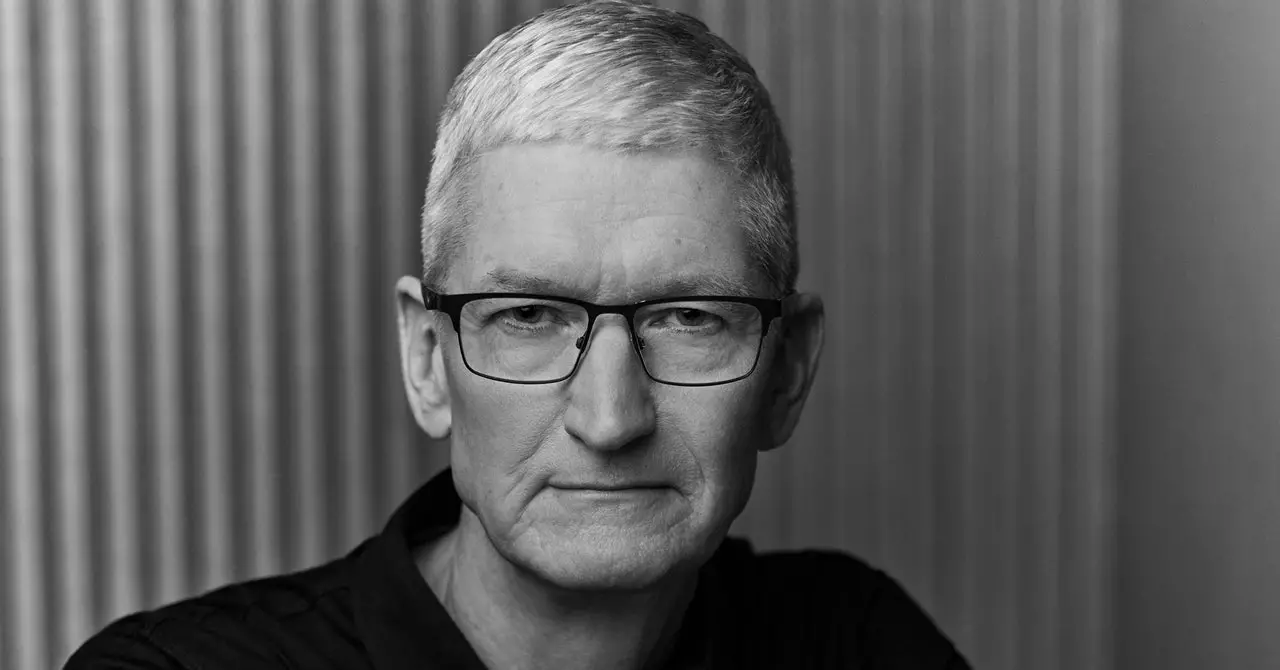In the heart of Silicon Valley lies Apple Park, a marvel of architecture and innovation that embodies the ethos of the tech giant. My past visit to this sprawling campus remains imprinted in my memory. It was a time when the building was still an edifice of dust and unfinished promise, a stark contrast to the vibrant ecosystem that thrives there today. On that initial tour, I had the rare opportunity to walk alongside Tim Cook, Apple’s CEO. He described the commitment to this new headquarters as a “100-year decision,” accentuating Apple’s long-term vision and dedication to becoming an enduring player in technology. Now, several years later, I once again find myself at the Ring, eager to engage with Cook amidst a rapidly shifting technological landscape.
The tech world currently stands at a pivotal crossroads. With significant advancements in artificial intelligence, particularly generative AI, companies are racing to solidify their market positioning. Against this backdrop, Apple’s forthcoming launch of Apple Intelligence marks a notable milestone, as the company seeks to establish its presence in an arena that is buzzing with excitement and innovation. While the likes of ChatGPT and various other pioneering chatbots have captured headlines and inspired conversations throughout the year, Apple’s AI debut comes across to many as a late entry into a crowded field.
Yet, Cook remains unruffled. Echoing the sentiments of Steve Jobs, he has demonstrated time and again that Apple’s strategy does not revolve around being the first but rather providing a product that is uniquely appealing and comprehensively integrated. It is not lost on him that the essence of Apple is delivering not just novelty, but a user-friendly utility that captivates consumers’ imaginations. This approach recalls the way the iPod transformed music consumption. It was not the first of its kind, but its elegant design and seamless integration into a digital ecosystem brought something refreshing to the marketplace.
Cook asserts that Apple has been laying the groundwork for this leap into AI for years. His recruitment of John Giannandrea from Google in 2018 marked a significant shift in vision, signifying Apple’s intent to escalate its efforts in machine learning and AI. By phasing out its previously-weighed option of a smart-car initiative—an endeavor rumored to be in the works but never publicly acknowledged—Cook strategically redirected resources towards enhancing Apple’s software products with AI capabilities.
The announcement in June regarding AI features spanning across Apple’s product line not only illustrates this shift but also highlights Cook’s adeptness at strategic decision-making. The partnership with OpenAI coupled with demonstrations of soon-to-be-released tools like custom emoji generation and Image Playground signifies a robust entry into a competitive field. This proactive approach is another manifestation of Cook’s understanding that timing rarely favors those who delay.
What arguably distinguishes Apple’s forthcoming AI initiatives from other competitors is their steadfast commitment to user privacy—a characteristic that has come to define Cook’s leadership. Much of the processing for Apple’s AI features is designed to occur directly on devices rather than relying on cloud computing, thereby ensuring that user data remains local and secure. While more complex operations may still take place in secure data centers, this focus on privacy sets Apple apart in a market often marked by concerns over data security and user trust.
This principle resonates deeply with consumers, particularly in an age where data breaches and privacy violations are prevalent. Cook’s approach addresses these worries head-on, promising users that their interactions with AI will not compromise their personal information.
As I sat down to interview Cook in a conference room distinguished by clean lines and modern sensibilities, I was reminded of his remarkable ability to navigate discussions. He embodies an engaging leadership style, employing a mix of courteous communication and unabashed pride in Apple’s accomplishments, all while sidestepping potential pitfalls of candid discussions about criticism and market competition.
This measured approach starkly contrasts with Jobs’s notorious confrontational style. Instead, Cook’s demeanor envelops those around him, fostering an atmosphere of mutual respect and understanding. Despite pressures whispering from every corner of the tech realm, he maintains an unshakable composure, as evidenced by his decisions and the way he communicates Apple’s mission.
The ultimate test of Apple’s AI ambitions lies in the hands of users. Although history teaches that even giants can stumble, Cook’s confidence and strategic foresight are undeniable. Should this initial foray into generative AI not meet expectations, one can anticipate Cook’s next keynote address filled with optimism and the promise of brighter futures. In the high-stakes environment of technology, one thing is clear: Tim Cook knows how to maintain his cool, even at the most intense crossroads.


Leave a Reply